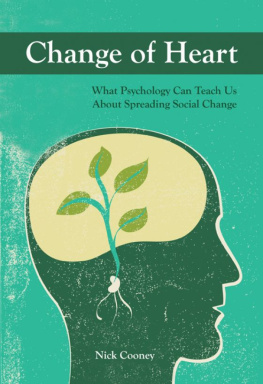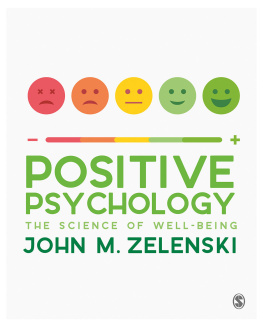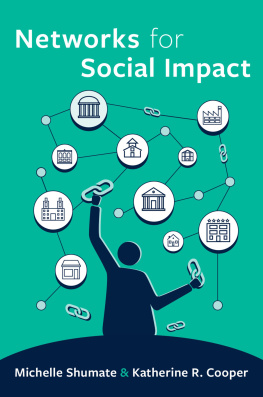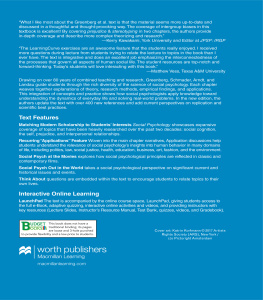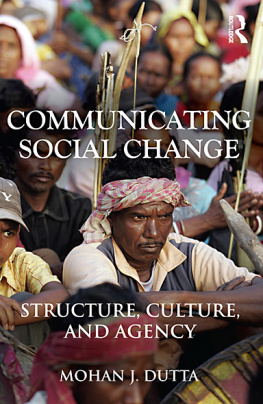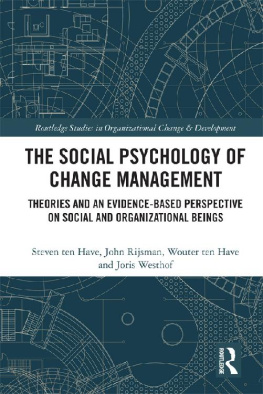Change Of Heart
What Psychology Can Teach UsAbout Spreading Social Change
By Nick Cooney
Lantern Books | New York
A Division of Booklight, Inc.
2011
Lantern Books
128 Second Place
Brooklyn, NY 11231
www.lanternbooks.com
Copyright Nick Cooney 2011
All rights reserved. No part of this book maybe reproduced, stored in a retrieval system, or transmitted in anyform or by any means, electronic, mechanical, photocopying,recording, or otherwise, without the written permission of LanternBooks.
Library of CongressCataloging-in-Publication Data
Cooney, Nick.
Change of heart : what psychology canteach us about creating social change / Nick Cooney.
p. cm.
ISBN-13: 978-1-59056-233-8 (alk.paper)
ISBN-10: 1-59056-233-X (alk.paper)
1. Social change--Psychologicalaspects. 2. Social action--Psychological aspects. 3. Influence (Psychology) 4. Persuasion (Psychology) I. Title.
HM831.C67 2010
303.4--dc22
2010029718
ebook ISBN: 9781590562451
Smashwords Edition, License Notes
This ebook is licensed for your personalenjoyment only. This ebook may not be re-sold or given away toother people. If you would like to share this book with anotherperson, please purchase an additional copy for each recipient. Ifyoure reading this book and did not purchase it, or it was notpurchased for your use only, then please return to Smashwords.comand purchase your own copy. Thank you for respecting the hard workof this author.
Praise for Change of Heart
A gem of a book! Flip toany page and youll find practical, well-researched examples of howto reach the public where theyre at right now and steer themtoward more compassionate, sustainable behaviors. Changing heartsand minds just got a whole lot easier! Judy Wicks , co-founder, BusinessAlliance for Local Living Economies (BALLE)
Change of Heart hashelped my understanding not only of how the public reacts to thelabor movement and workers rights, but how our own members will bemotivated and empowered to take action as well. A concise andcomplete handbook for anyone looking to get their message to themasses effectively. DenaFleno , Council 4 AFSCME Union
If we want to create amore compassionate world, we need to understand what motivatespeople to make compassionate choices. Change of Heart providesfresh, research- based insight into how non-profits and individualscan more effectively create social change through a betterunderstanding of the human mind. GeneBaur , Director, Farm Sanctuary
Social justice advocatesoften lack the research needed to support successful campaigns.Cooney helps fill in this gap by culling the social-psychologyresearch and teaching non-profits and grassroots organizations howto develop more effective campaigns. Carol Glasser , Humane ResearchCouncil
Finally, an effectivegrassroots activist tells us directly and simply how to win acampaign and the hearts and minds of the public. Read this book andact! Anthony J. Nocella,II , co-editor of Igniting a Revolution:Voices in Defense of the Earth
One thing is clear aboutthis century. We have to fast-track changes in our relations with,and practices toward, other species. Nick Cooney has provided uswith important food for thought in examining how we might intensifythe process. Richard TwinePhD ., author of Animals as Biotechnology:Ethics, Sustainability and Critical Animal Studies
Table of Contents
Chapter 5:Tools Of Influence, Part II: Power Tools
Chapter 6:Tools Of Influence, Part III: Tools OfPersuasion
Introduction
This is a book about creatingsocial change. People who work to changesociety are often called activists , though they may not thinkof them- selves in that way. They may call themselves communityorganizers, volunteers, or non- profit employees, or they may notcall themselves anything at all. What they all have in common isthat they want a change: they want people to change their behavior,institutions to change their policies, and governments to changetheir laws. This book is about how to create change, particularlyin individuals. If youre seeking a more compassionate world,consider this a psychological road map.
Over the past decade, my advocacywork has taken me from the woods of Oregon to the villages ofMexico, from the streets of San Francisco to jail cells inWashington D.C. While the vast majority of my time is now spent onanimal protection work as director of The HumaneLeague , this book was writtenfor progressive activists of all stripes. It wont give solutionsto every problem, but it will examine why people are so resistantto change and discuss tools of influence that can be used to helppeople adopt more compassionate behaviors
***
Should activists use graphic images to get public support for their cause, orwill such images turn the public off?
In encouraging people to adoptsustainable behaviors, should environmental organizations ask forsmall changes like using fluorescent light bulbs or big changeslike giving up cars?
Why do most Americans say theyoppose the cruel practices of factory farms and sweatshops yetstill buy products from these places?
And how can non-profits get morepeople to say yes to requests that they volunteer, donate,recycle, write a letter to a political prisoner, support gayrights, go vegetarian, conserve energy, or make other positivechanges?
Questions like these are debated byactivists all the time, sometimes causing serious divisions amongorganizations that have similar goals but different viewpoints onhow to get there. Typically such debates are viewed as opinionquestions, with anecdotal evidence to support both sides but nodefinitive answers. But is that really the case? If experimentalresearch was done that found answers to these questions and dozensmore like them, would you want to know the results? If researchproved certain techniques to be effective at changing peoplesbehaviors, would you want to know what those techniqueswere?
In his bestselling book The Tipping Point ,sociologist MalcolmGladwell notes that We have aninnate belief that a dogged and indiscriminate application ofeffort is best and will workit is not, and will not, and often isnot even possible (Gladwell). While his statement is directedtoward the general public, it holds particularly true for those whoare trying to create social change. Lawyers, teachers, and otherprofessionals study for years to learn the bodies of knowledgeneeded to succeed in their fields, yet activists and many advocacyorganizations (especially smaller grassroots groups) often assumethat passion, sweat, and a few tried-and-true campaign methods areall they need to be effective.
Attention is sometimes paid tothe howtos of activism : books,websites, and work- shops provide guides on how to stage protests,pass out flyers, circulate petitions, recruit volunteers, buildcoalitions, and contact the media. But whats really at the heartof social change is an entire field of knowledge largely ignored bythe activist community: the area of human psychology.
If we want to change society, theonly way we can do so is by changing the attitudes and behaviors ofhuman beings. To do that, we need to know how to work with (andsometimes work around) the human mind and all of itseccentricities. The more we understand how peoples minds work, themore influential we will be in changing behaviors and the moresuccessful we will be at winning campaigns. A truly effectiveactivist is a psychologist at heart.
Most of us assume we know enoughabout how the brain works to get by. After all,
we all have one. But much of ourcommon-sense knowledge in this area is nave psychology,misperceptions about how the mind works. These misperceptionsreduce our effectiveness in creating change, and in some cases theywill prevent us from creating any change whatsoever. In the worstscenarios, theyll cause us to bring about the exact opposite ofwhat were trying to achieve.
Next page
